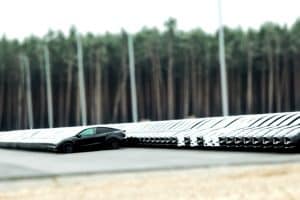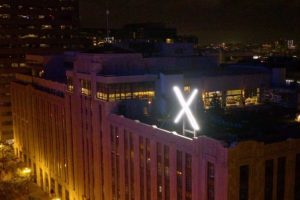Key Points
- 💼 Rivian is laying off approximately 20 workers from its in-house battery cell development team in Normal, Illinois.
- 🧑💼 The head of cell engineering, Victor Prajapati, is among those laid off, expressing gratitude for the past three years and hinting at future contributions to sustainability.
- 🚗 Despite the layoffs, Rivian plans to continue working with Korean battery supplier Samsung for its battery packs, pausing its in-house development temporarily.
- 📅 Rivian is set to unveil its upcoming generation of electric vehicles next year, with deliveries expected to begin in 2026.
- 🏭 The company was recently approved to build a $5 million plant in Georgia for its second-generation R2 line.
In the ever-evolving landscape of electric vehicle (EV) innovation, recent developments at Rivian have sparked discussions and raised questions about the company’s strategic decisions. This blog post delves into the details of Rivian’s recent layoffs, the implications for its battery development, and the company’s future outlook.
The Layoffs: A Closer Look
Rivian’s decision to lay off approximately 20 workers from its in-house battery cell development team in Normal, Illinois, has undoubtedly raised eyebrows within the industry. This move includes the departure of Victor Prajapati, the head of cell engineering, whose LinkedIn post expressed gratitude for the past three years while hinting at future contributions to sustainability.
Insights and Reflections
- The layoffs mark a significant shift in Rivian’s internal structure, especially with key figures like Prajapati departing.
- Prajapati’s gratitude and reference to sustainability raise questions about the direction of his future endeavors and how this might align with Rivian’s mission.
A Pause, Not an End: Collaboration with Samsung
Despite the internal restructuring, Rivian maintains its commitment to advancing EV technology. The decision to continue working with Korean battery supplier Samsung for its battery packs indicates a strategic pause rather than a complete cessation of in-house development.
Key Points
- Strategic Partnership: The collaboration with Samsung underscores the importance of strategic partnerships in the EV industry.
- Temporary Pause: The decision to pause in-house development suggests a reevaluation rather than abandonment, allowing Rivian to explore external collaborations while maintaining momentum.
Future Roadmap: Unveiling the Next Generation
Rivian’s roadmap includes unveiling its next generation of electric vehicles next year, with deliveries expected to commence in 2026. This raises anticipation and questions about the features, capabilities, and innovations that Rivian aims to bring to the market.
Anticipated Developments
- Innovation Showcase: The upcoming vehicle release is an opportunity for Rivian to showcase innovations and set new industry standards.
- Consumer Expectations: With a timeline set for deliveries, consumers are eager to learn about the features that will make Rivian’s next generation stand out.
Expansion Plans: Georgia Plant Approval
Recent news of Rivian’s approval to construct a $5 million plant in Georgia for its second-generation R2 line adds another layer to the company’s dynamic growth strategy. This expansion prompts considerations about the potential impact on local economies and the company’s overall production capacity.
Considerations
- Economic Impact: The plant’s construction is likely to have positive economic implications for the region, providing job opportunities and stimulating local businesses.
- Production Scalability: The approval aligns with Rivian’s strategy to scale up production and meet growing demand for its EVs.





